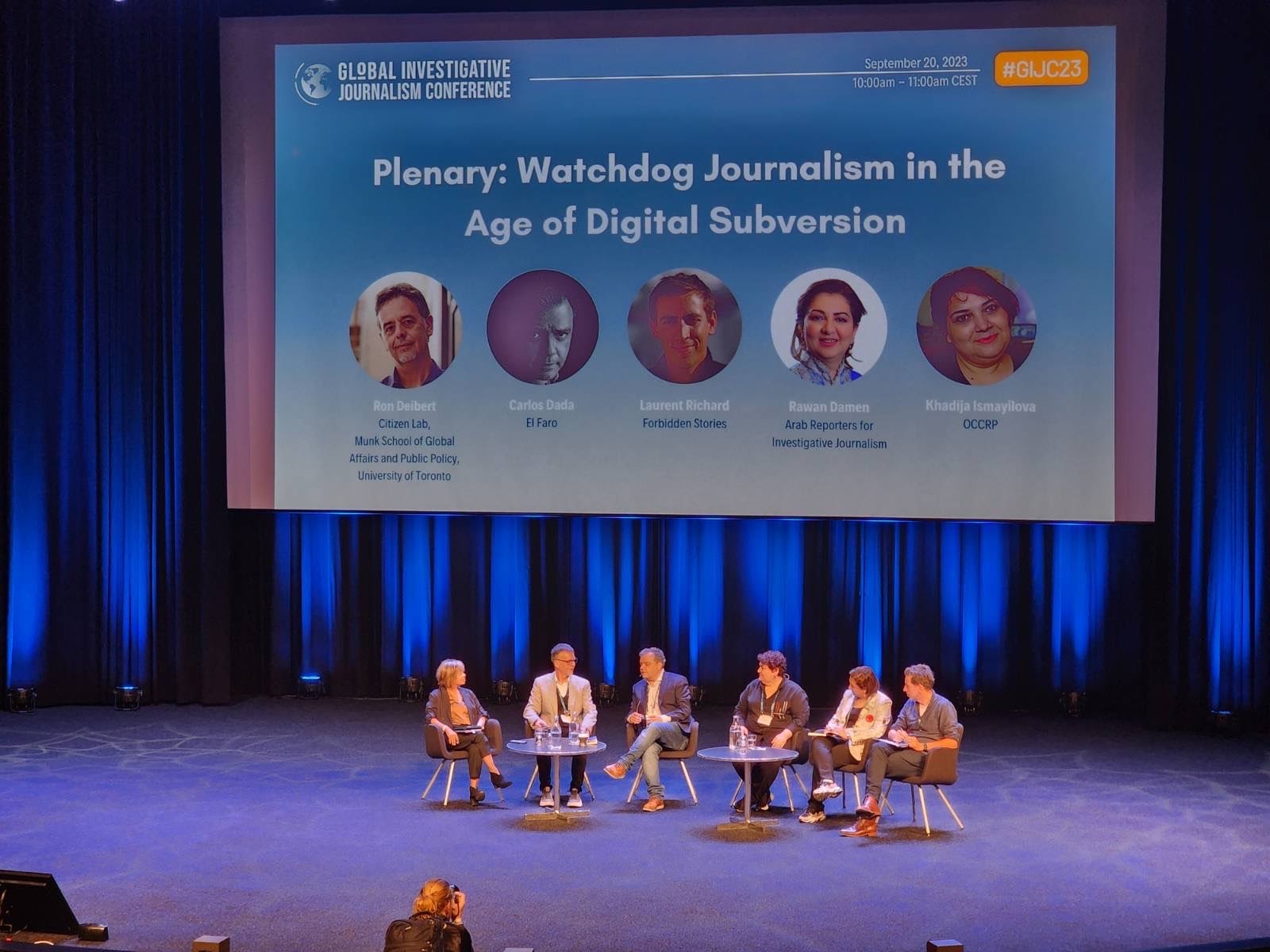ARIJ concluded its participation in the thirteenth edition of The Global Investigative Journalism Conference 2023 (GIJC23) in historic Gothenburg, Sweden, between September 19 and 22. The conference is the world’s largest international gathering of investigative journalists. The conference features training on the latest tools and techniques, cutting-edge workshops, and extensive networking and brainstorming sessions.
Director-General of ARIJ, Rawan Damen, took part in a discussion panel on the first day of the conference, focusing on ‘Watchdog Journalism in the Age of Digital Subversion.’
“The significant digital threats we face necessitate a strong focus on promoting digital awareness and security, a priority for us at ARIJ, in order to protect our community of investigative journalists and fact-checkers,” Damen said.
Damen was in the panel with journalist Sheila Coronel from the Toni Stabile Center for Investigative Journalism at the Columbia Journalism School, Journalist Khadija Ismayilova from the Organized Crime and Corruption Reporting Project (OCCRP), journalist Laurent Richard, Founder and Executive Director of ‘Forbidden Stories,’ Director & Co-Founder of El Faro journalist Carlos Dada, who was honored as a ‘World Press Freedom Hero’ by the International Press Institute in 2022, and Professor of Political Science and founder and Director of the Citizen Lab at the Munk School of Global Affairs & Public Policy, University of Toronto, Ron Deibert.
In his keynote speech, ‘Watchdog Journalism in the Age of Digital Subversion,’ Ron Deibert, Director of the Citizen Lab, discussed various instances where investigative journalists have fallen victim to hacking and surveillance in attempts to obstruct their work. Deibert emphasized the need for a different approach to digital security practices, stating, ‘We need to think differently about our digital security practices, not just on our phones, but also within the entire ecosystem. Collaboration is always key.’
Laurent Richard from Forbidden Stories highlighted, ‘What we are witnessing in the journalism community is a lack of understanding that digital threats pose a significant risk to democracy.’ He continued, ‘These threats are unique; they are invisible threats, driven by a profit model, and there is no single mechanism to protect citizens.’
Carlos Dada believed that ‘The safest way to react to digital threats is to assume that someone is watching or following you.’
Journalist Khadija Ismailov shared her experiences of being hacked multiple times during her investigative work. ‘You feel that your life is being violated. Governments and technology companies violate our freedom and privacy as journalists, and they must be held accountable for this crime,’ Khadija stated.
The ARIJ Investigation, titled “Scorpion Prison Cells Above the Law,” reveals the prohibition of visits for a group of prisoners in Egypt and their deprivation of meeting their families during the COVID-19 pandemic, has made it to the final list of candidates to win the Global Shining Light Award.
This year, Fojo Media Institute (Fojo), based at Linnaeus University, co-organized the conference in close collaboration with the FGJ (Swedish Association of Investigative Journalism), serving as local co-hosts alongside the GIJN (Global Investigative Journalists Network) as the main organizer.
The Global Conference is held every two years. Since the inaugural gathering in Copenhagen in 2001, previous conferences have been hosted in nine countries, including Brazil, Germany, Norway, South Africa, and Ukraine. The conference typically attracts more than 2000 journalists from over 120 countries.”








